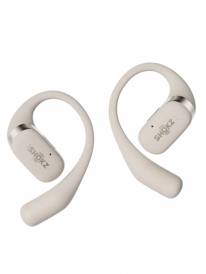Dr Anthony Bennett and Dr James Carroll Flea Free Friday Interview

Dr Anthony Bennett and Dr James Carroll Flea Free Friday Interview
Research shows a worrying 58 per cent of dog owners in Victoria do not treat against fleas effectively. The research, conducted by Merial, a world-leading animal health company, has been released to educate dog owners in Victoria about the importance of protecting against fleas.
As the weather gets warmer, dogs that are not protected with an effective flea control product are more likely to carry fleas and eggs on their body, which exposes the home and the whole family to the risk of infestation.
Confusion around flea control products and when to administer are two of the biggest factors causing the lack of compliance, according to the research, which highlighted the need for better education amongst dog owners and a high quality, yet easy to administer product.
With this in mind, Merial recently launched NexGard Chewables, a tasty, monthly beef-flavored chew powered by breakthrough science, which kills fleas for an entire month. In a bid to educate dog owners in Victoria on how to effectively protect against fleas, NexGard is today championing -Flea Free Friday' – a day to showcase its simple yet effective regime; one chew, once a month, on the first of the month.
'It's no surprise that dog owners are getting confused with so many flea control options available and as a result they haven't been able to settle on an effective regime. However, when it comes to fleas, it's important to treat regularly because just one or two fleas on a dog can result in a home becoming infested, which is a huge problem," said Andrew Palmer, Merial Country Manager Australia.
'Since launch, NexGard has become popular with dog owners across Australia because it's so simple; select the correct chew for the dog's weight and give it like a tasty treat on the first day of every month. NexGard also combines flea and tick protection in one chew, which means dogs are protected against the deadly paralysis tick – something that not many other flea products offer. Even though Victoria isn't a tick zone, owners who travel with their dogs can feel confident in the knowledge that they are protected within hours of administering," Andrew concluded.
Foxtel's Village Vets, Dr Anthony Bennett and Dr James Carroll, have welcomed the next generation chew. 'This is a game changer for dog owners. Whether it's a flea infestation or a life threatening paralysis tick, we find that in our clinic, many cases could be prevented if the dog had been receiving the correct treatment," said Anthony.
James added, 'Most dog owners understand the importance of protecting their dog from parasites and now with NexGard's easy to administer monthly dosage, we expect to see an increase in compliance amongst owners."
NexGard can be given with or without food and is also suitable for puppies from 8 weeks of age, weighing 2kgs or greater. NexGard is available in Australia at leading veterinary clinics and selected retail outlets.
For more information on how to protect your dog from ticks and fleas using NexGard, please visit www.nexgard.com.au or see product label for full claim details.
 Interview with Dr Anthony Bennett and Dr James Carroll
Interview with Dr Anthony Bennett and Dr James Carroll
Question: Were you surprised that more than 50% of dog owners are not effectively treating against fleas?
Dr Anthony Bennett and Dr James Carroll: Whilst it is alarming that 50% of dog owners are not effectively treating their dogs against fleas it is not an altogether surprising statistic. Unfortunately a lot of dog owners believe that fleas only occur in the warm conditions prevalent in spring and summer when in fact fleas love the temperature controlled environment of our winter homes. When you add to that the fact that fleas are very difficult to find and flea infestations can occur quite rapidly, you suddenly have a recipe for disaster.
Question: Can you explain the importance of protection against fleas?
Dr Anthony Bennett and Dr James Carroll: Fleas are blood-sucking parasites that can spread diseases, such as the bubonic plague, and parasites such as tapeworms. In addition to this many dogs are highly allergic to the saliva of the common dog and cat flea (Ctenocephalides canis and felis) and a single bite can result in up to a month of incessant and destructive scratching and biting. Once this process is underway a visit to the vet for treatment with antibiotics and anti-inflammatory steroids is usually required in addition to controlling the flea infestation. Of course, protection is better than cure as once you have identified fleas on your dog there will be a very high burden of flea larvae and pupillae in the environment, waiting to hatch and infest your dog. The fleas on your dog are simply the tip of the iceberg and controlling serious infestations can be very difficult and costly.
Question: How often do we need to treat our pets for fleas?
Dr Anthony Bennett and Dr James Carroll: You need to treat your pet in accordance with the manufacturer's guidelines and this usually requires a monthly treatment. Remember to treat your dog though winter, as well as in spring and summer, to avoid horrendous flea outbreaks as the weather warms up.
Question: What are the most effective methods to preventing fleas?
Dr Anthony Bennett and Dr James Carroll: Regular treatment with products, such as NexGard, is the single most effective way of controlling fleas. Prevention is better than cure so monthly dosing is essential. Treating all animals in the household at the same time is essential to prevent breakdowns.
Question: What are the symptoms of fleas on a dog?
Dr Anthony Bennett and Dr James Carroll: The most common symptom of fleas on your dog is scratching and this tends to be localised to the tail base and between the hind legs. You may notice that your dog has removed hair or caused skin inflammation or bleeding due to the intense itching that results from fleabites. You may also note that your dog is turning around and frantically biting or chewing in these areas. Even if you can't find live fleas – they can be very difficult to see especially on dark coated dogs – if you see dark specs within your dog's hair coat this is usually evidence of flea dirt and indicates a recent, if not current, infestation. Flea dirt is flea faeces and when wet will turn red as it is mainly composed of digested blood.
Question: Can you tell us about Flea Free Friday?
Question: What's a typical day like, for you both?
Dr Anthony Bennett and Dr James Carroll: There is no such thing as a typical day for a mixed practice vet in country NSW. Our case load is extremely diverse; you can be pregnancy testing cattle in the morning, performing surgery on a horse or a guinea pig during the day, consults in the clinic or on the road in the afternoon and then doing an MRI on a dog's brain in the evening. We love the variety that our jobs provide us and wouldn't have it any other way.
Question: What inspired your passion for animals and a career as a vet?
Dr Anthony Bennett and Dr James Carroll: We both grew up with exposure to the country lifestyle; James on the family farm in Wee Waa and myself on our property on the south coast. We both had loads of pets during our childhood and the opportunity to work with animals of all shapes and sizes on a daily basis was an irresistible job description.
Interview by Brooke Hunter
MORE





